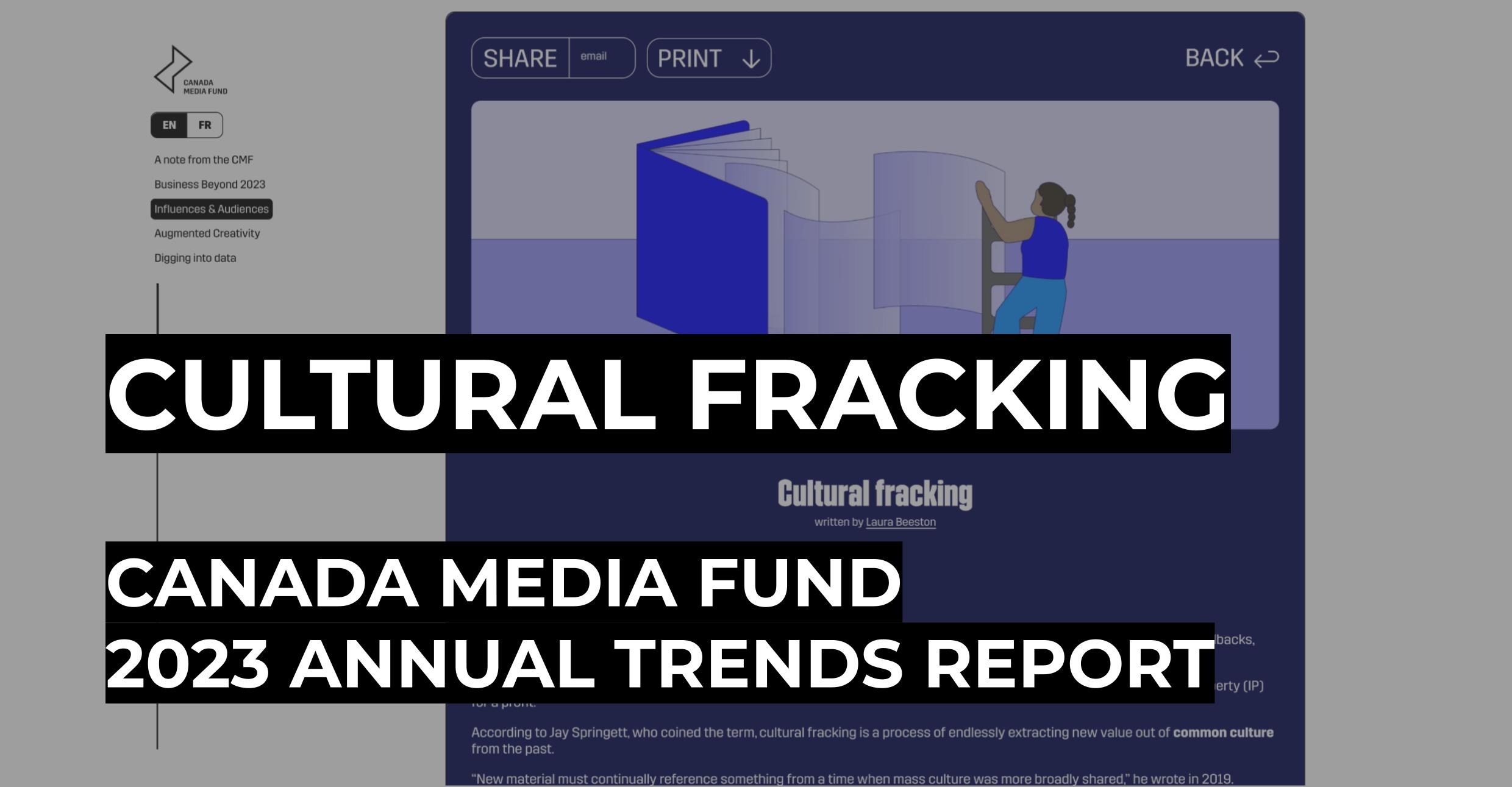Last year I was interviewed by the Canada Media Fund. That interview became the starting point for a *whole chapter* on Cultural Fracking in their 2023 Annual Trends Report.
You know it when you see it.
It’s the references, old formulas, reboots, recurring characters, remakes, reheated storylines, sequels, alternative timelines, callbacks, and easter eggs …
It has come to be known as cultural fracking — a phenomenon that draws on mass cultural touchstones and intellectual property (IP) for a profit.
According to Jay Springett, who coined the term, cultural fracking is a process of endlessly extracting new value out of common culture from the past.
“New material must continually reference something from a time when mass culture was more broadly shared,” he wrote in 2019. “[M]ainstream culture has to continually frack the past to create future material.”
Today, Springett says, at least the big tentpole franchises are giving a little more freedom to individual directors and singular artists, “rather than engaging in storytelling by committee.”
Even still, cultural fracking is controversial and a concerning commercial reality for creators operating outside of American cultural hegemony, Hollywood or Disney.
Treating media as a commodity, like gas, means there’s a lack of investment in new or alternative stories, Springett explains. “When culture is owned and is used as a commodity [to] create returns on an investment, that ties into copyright and the way that culture gets funded.”
And, much like the act of fracking oil itself, blasting every rock down to its last drop tends to contaminate the water supply and wipe entire ecosystems out.
It’s a real career highlight to have Cultural Fracking, a concept that I coined back in 2019, show up in a report like this, let along have a chapter dedicated to it. It’s been super fun to see the term slowly percolate out into the world. In fact, it was even been mentioned by Everything Everywhere All at Once director in the LA times!
“The multiverse can be way more than just this corporatized version of it that we’re seeing right now, where it’s basically used for fan service or for cultural fracking, almost — like we’re mining our past cultures just so that we can resurrect them in new arrangements,” Kwan said.
In addition to my contribution to the CMF Report, they also interviewed cultural commentator Brian Holidae, and o’l buddy o’l pal Andrew Dana Hudson about his short story “Voice of Their Generation”.
The other challenge to creating common culture in an internet age is speed: The zeitgeist is distributed, bottom-up and outpacing studios, rather than coming from them.
“Things can be common culture for like a week,” Hudson adds. “We can never go back [to] that period where there were four channels and everyone knew every show, even if they didn’t watch them.… Mass culture was a collection of things that were forced on us [but] that’s never going to happen again. We’re in a new space.”
The article then transitions away from Cultural Fracking to look towards counter trends. Whilst not explicit the chapter moves towards a Permissive IP approach and I shout out the Fringe movie project.
Never being one to suffer from hubris, the chapter ends with me offering a whole damn country some advice:
“If I was Canada, I would be thinking about creating innovative licenses for IP.”
The whole report, and especially this chapter on Cultural Fracking is insanely well written, well worth your time.
Check out the whole report here.
Prefer Email? 📨
Subscribe to receive my Weeknotes + Podcast releases directly to your inbox. Stay updated without overload!
Or subscribe to my physical zine mailing list from £5 a month

Leave a Reply